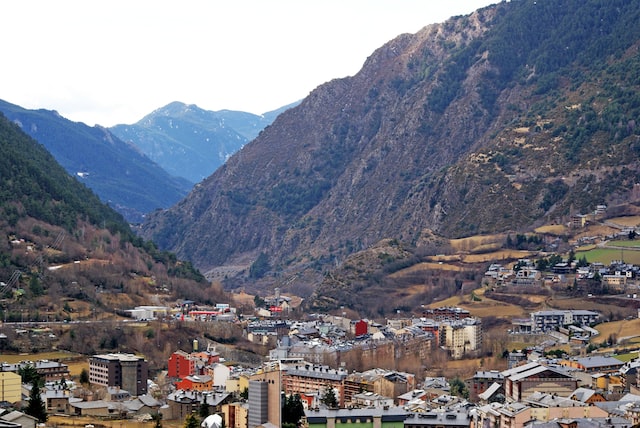A modest European nation is working hard to establish itself as a top destination for foreign investment. It is the Principality of Andorra, a developed nation with a high per capita income, a strong political system, and a thriving economy centered on tourism and the financial industry.
It is a tiny European nation with a population of about 77,500 people and a land area of 468 km2 that is situated in the Pyrenees, between Spain and France.

It is a member of the European Union Customs Union and utilizes the Euro as its national currency. Although Catalan is the official language, Spanish, French, and Portuguese are also widely spoken.
What, however, draws investors of all sizes—large, medium, and small—from around the world to this principality for capital investments and even to relocate?
There are numerous factors, as it is already well known that Andorra has one of the best business climates in the world.
Let’s see the reasons.
Political stability
One of the most stable nations in its neighborhood is Andorra. It is a democratic co-principality with a parliament, the Consell General d’Andorra, which approves the majority of governmental decisions.
It is a nation with remarkable social tranquility, where there has never been a record of any harm done for political reasons to people, projects, or private facilities, and where the likelihood of civil upheaval is essentially nonexistent.
Andorran society
As a result of its proximity to nations like Spain, France, and Portugal, Andorra has an extremely rich cultural heritage. It is a multicultural society where a sizable share of the populace is foreign-born. More than 58% of Andorrans, mostly from Spain, Portugal, and France, are immigrants, according to UN statistics, and they have assimilated exceptionally well into the peaceful Andorran way of life.
In reality, there is hardly any crime in the Principality, which is why an increasing number of people are deciding to move there from nearby nations where the level of insecurity is much higher.
Economy
The tourism industry and banking sector are the two main drivers of Andorra’s economy. With 8 million visitors a year, the tourism industry generates almost 80% of the GDP, a staggering number given that only 77,500 people are living there.
With a GDP per capita of 32,079 euros in 2020, the nation was ranked 28th out of 196 nations, making it one of the wealthiest in the world. The Andorran economy grew at an average annual rate of 1.92% over 2015-2019 and there is almost full employment as the unemployment rate was at 1.9% in the first quarter of 2020.
Education and healthcare system
In Andorra, three public education systems coexist. From elementary school through secondary school, families have a choice of the Spanish, French, or Andorran educational systems.
Andorra’s public health system is quite effective, and it is supported by international agreements with the health systems of other nations like Spain and France.
According to rankings created by respected journals like The Lancet, the healthcare system in Andorra is among the best in the world.
Financial system
Together with tourism, the financial industry is the foundation of the Principality of Andorra’s economy. The Euro was adopted by Andorra in 2002, has been the official currency since 2011, and has been legal tender since 2013.
The Andorran Financial Intelligence Unit (UIFAND) is responsible for preventing money laundering, while the Andorran Financial Authority (AFA) is in charge of overseeing the system’s stability and regulation.
Legal regime
The judiciary in the Principality of Andorra is separate from the executive branch, as it is in every democracy. More and more economic sectors are being liberalized, and transparent laws and policies aiming at modernizing the nation have been formed.
It has also started to loosen labor and immigration laws, particularly those that required a foreign professional to have lived in the country for 20 years before being able to own 100 percent of their company.







